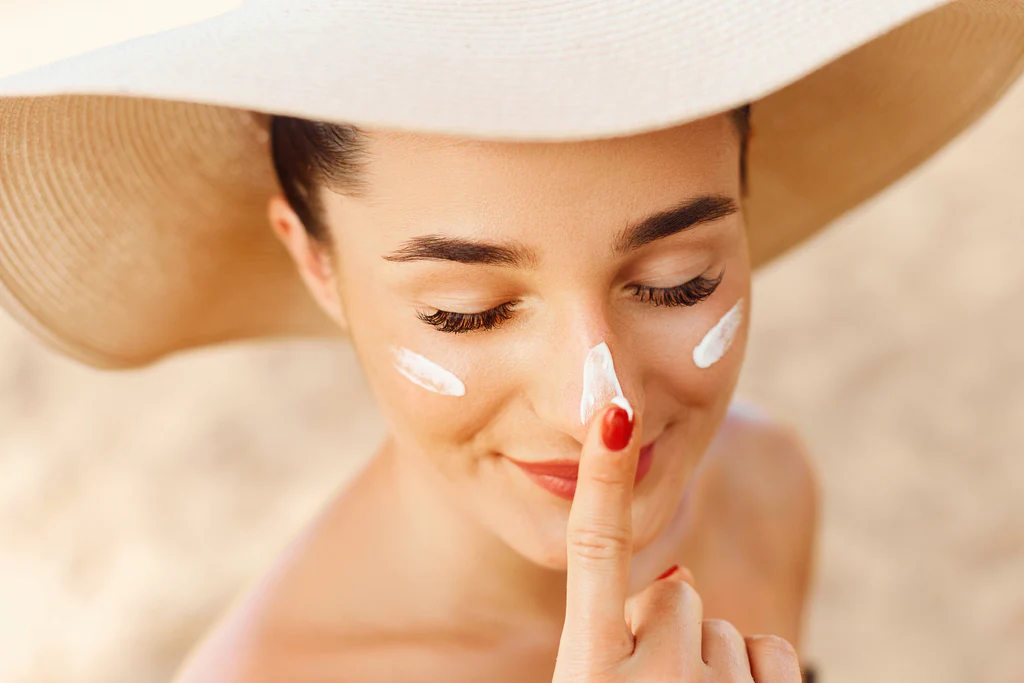When it comes to skincare, protecting your skin from the harmful effects of the sun is crucial. Sunscreen with a high SPF (Sun Protection Factor) plays a vital role in shielding your skin from harmful ultraviolet (UV) radiation. In this article, we will explore the benefits of SPF and why it should be an essential part of your skincare routine.
What is SPF?
SPF is a measure of how effectively a sunscreen protects your skin from the sun’s UVB rays, which are responsible for causing sunburns. It indicates the duration of protection compared to the time it takes for your skin to start reddening without any protection. For example, if your skin would typically start to burn after 10 minutes of sun exposure, applying SPF 30 sunscreen would theoretically protect your skin for 300 minutes (10 minutes multiplied by the SPF factor).
How Does SPF Work?
SPF works by forming a protective barrier on your skin that reflects or absorbs the UVB rays. It prevents them from penetrating the skin’s surface and causing damage. SPF does not block all UV rays, so it’s still essential to seek shade, wear protective clothing, and limit your sun exposure, especially during peak hours.
Benefits of SPF
- Protection against Sunburns: The primary benefit of SPF is its ability to protect your skin from sunburns. Sunburns can cause pain, redness, peeling, and even blisters. Using sunscreen with a high SPF significantly reduces the risk of sunburn.
- Lower Risk of Skin Cancer: Prolonged exposure to the sun’s UV rays increases the risk of developing skin cancer. By regularly using sunscreen with a high SPF, you can significantly lower this risk and protect your skin’s health.
- Prevention of Premature Aging: Sun exposure is a leading cause of premature aging signs such as wrinkles, fine lines, and age spots. SPF helps prevent these signs by shielding your skin from harmful UV radiation, keeping it youthful and vibrant.
- Protection from Harmful UV Rays: UV radiation can cause various skin issues, including DNA damage, collagen breakdown, and weakened skin barrier. SPF provides a shield against these harmful rays, helping to maintain the overall health and integrity of your skin.
- Maintenance of Even Skin Tone: Regular use of SPF can help prevent the development of uneven skin tone, dark spots, and hyperpigmentation caused by sun exposure. It promotes a more even complexion and a smoother texture.
- Suitable for All Skin Types: SPF is suitable for all skin types, including sensitive, dry, oily, and acne-prone skin. There are various formulations available, allowing you to find the one that suits your specific skin needs.
- Easy to Incorporate in Skincare Routine: Applying SPF is a simple step that can be easily incorporated into your daily skincare routine. It takes only a few minutes but provides long-lasting protection for your skin.
- Availability of Various Formulations: Sunscreens with SPF come in different formulations such as lotions, creams, gels, sprays, and sticks. This variety allows you to choose the texture and application method that you find most comfortable and convenient.
- SPF and Makeup: Many makeup products now come with SPF, offering added sun protection. However, relying solely on makeup for SPF may not provide adequate coverage, so it’s still essential to use a dedicated sunscreen.
How to Choose the Right SPF
Choosing the right SPF is crucial for effective sun protection. Consider the following factors when selecting sunscreen:
- Understanding SPF Numbers: SPF numbers indicate the level of protection provided by the sunscreen. Higher SPF values offer greater protection. Experts recommend using sunscreen with at least SPF 30 or higher for daily use.
- Consideration of Skin Type: Different skin types have different levels of sensitivity to the sun. If you have fair or sensitive skin, you may need a higher SPF for optimal protection.
- Broad-Spectrum Protection: Look for sunscreens that offer broad-spectrum protection, meaning they protect against both UVA and UVB rays. UVA rays can also contribute to skin damage and aging.
- Water and Sweat Resistance: If you plan to swim or engage in physical activities that may cause perspiration, choose a sunscreen that is water and sweat resistant to ensure it stays effective.
- Application and Reapplication: Apply sunscreen generously and evenly on all exposed areas of the skin. Reapply every two hours or more frequently if you are sweating or in water.
Conclusion
SPF is a vital component of any skincare routine, providing numerous benefits such as protection against sunburns, lower risk of skin cancer, prevention of premature aging, and maintaining an even skin tone. By choosing the right SPF and incorporating it into your daily routine, you can safeguard your skin’s health and maintain its youthful appearance.


Leave a comment
Your email address will not be published. Required fields are marked *